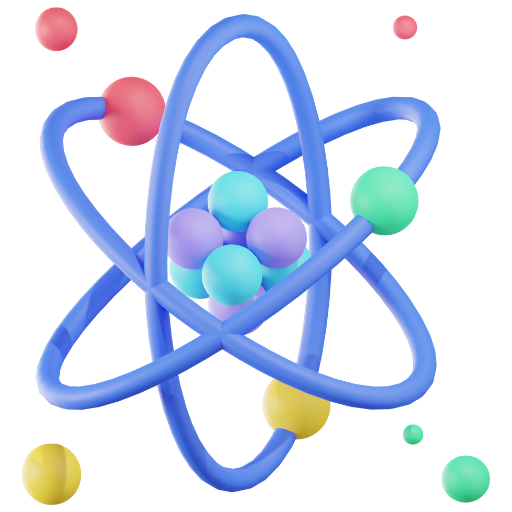The discussion on whether AI is overhyped or truly revolutionary has taken the stage in the technologically advanced setting of today. The existing use of artificial intelligence coupled with its successes, moral and legal conundrums, and pragmatic applications is reviewed in this work. We look at the opportunities for artificial intelligence to revolutionize numerous fields as well as its drawbacks including dependability and lack of originality. We pose the important question: is artificial intelligence living up to its promise or are we succumbing to another overhyped technology based on past technical excitement?
Table of Contents
- Understanding the AI Hype: Lessons from Past Technological Failures
- AI’s Real-World Applications and Challenges
- What Does the Future Hold for Artificial Intelligence?
Understanding the AI Hype: Lessons from Past Technological Failures

Have you ever questioned whether artificial intelligence is really revolutionary or just another passing fancy? Unquestionably, artificial intelligence (AI) is causing noise. From tailored medicine to self-driving automobiles, artificial intelligence seems to change our planet in ways only humans could have imagined. But within the buzz, it’s important to consider: Is artificial intelligence really revolutionary, or is it another instance of technological overhype?
We must go back to earlier technological mistakes if we want to grasp the present AI frenzy. One excellent illustration is the late 1990s dot-com bubble. Driven by the promise of the internet, many businesses sprang out ready to transform everything. Many of these businesses, meantime, had strong business plans and finally collapsed. Among further examples of “AI failures” demonstrating the possibility for technology to fall short of expectations are the buzz about 3D television, Web 3.0, and the metaverse.
AI’s Potential and Limitations
Many sectors are being revolutionized by artificial intelligence, which therefore presents opportunities as well as problems. AI still struggles with creativity and common sense thinking even if it has made major progress in chores like image recognition and natural language processing. Consider Google Translate and other AI-powered translating apps. Especially in complicated statements, they often stumble on nuances and context even if they can interpret simple words. Alternatively take facial recognition programs, which allow one to match images and videos to individuals. Although this technology has significant possibilities for law enforcement and security, it also begs privacy issues and possible for misuse questions.
A complicated problem with much thought needed is how artificial intelligence affects the employment market. AI can replace human labor by automating jobs once completed by humans, therefore causing employment loss in some sectors. Still, it also generates fresh prospects in disciplines pertaining to artificial intelligence creation, application, and management.
The Future of Artificial Intelligence
The way we handle ethical issues and constraints of artificial intelligence will determine its destiny in great measure. Though artificial intelligence has great promise, it is important to recognize its constraints and proceed carefully. Though the excitement may entice you to get carried away, keep in mind that artificial intelligence is only a tool—not a magic bullet. AI shouldn’t be considered as a replacement for human intelligence and creativity since there is not such thing.
We should concentrate on useful applications of artificial intelligence and handle its ethical consequences if we are to prevent yet another technological bubble. We have to be careful, appreciating artificial intelligence’s possibilities while also noting its constraints and handling its problems.
AI’s Real-World Applications and Challenges

Artificial intelligence (AI) is clearly hot right now. From tailored medicine to self-driving automobiles, artificial intelligence seems to be revolutionizing our planet in ways we only could have imagined. Amid the thrill, though, we wonder: Is artificial intelligence really revolutionary, or is it merely another case of technical overhype?
We must go back to earlier technological mistakes if we want to grasp the present AI frenzy. One excellent illustration is the late 1990s dot-com bubble. Driven by the promise of the internet, many businesses sprang out ready to transform everything. Many of these businesses, meantime, had strong business plans and finally collapsed. Among many examples of technical failures that highlight the possibility for technology to fall short of expectations are the buzz around 3D TV, Web 3.0, and the metaverse.
Is AI Overhyped?
I recall the time self-driving cars were first under development. There was amazing hype! Everyone was debating how they would simplify our lives and transform travel. Years later, though, we still haven’t seen general acceptance of self-driving cars here. Among numerous issues they have encountered are technical ones and legal ones.
Some artificial intelligence applications have exceeded the hype and provide actual usefulness. For example, artificial intelligence-powered recommendation engines employed by businesses like Amazon and Netflix have transformed our consumption of entertainment and shopping. These algorithms have shown to be quite successful in forecasting our preferences, so producing individualized experiences not otherwise possible.
The success of artificial intelligence in some sectors, however, should not be seen as proof that it is poised to transform every facet of our life. Even although artificial intelligence is undoubtedly a useful tool, we shouldn’t exaggerate its powers. AI is still in its early years of development, hence many issues must be resolved before it can really realize its full potential.
AI’s Potential and Limitations
Many spheres of human life already show actual influence of artificial intelligence. AI is being applied in healthcare to create novel medicines, examine medical images, and identify disorders. AI is applied in finance to manage investments, identify fraud, and offer individualized financial advise. In the classroom, artificial intelligence may customize instruction for each student so they may learn at their own speed and concentrate on areas needing greatest help.
With certain jobs mechanized and new ones arising, artificial intelligence is also changing the employment scene. A complicated problem with much thought needed is how artificial intelligence affects the employment market. While some analysts contend that artificial intelligence will bring new opportunities, others think it would cause significant employment losses. This will present a major difficulty for society since we have to decide how to handle possible job displacement and guarantee that the AI transformation benefits everyone.
AI has certain restrictions, though. The fact that artificial intelligence systems can be biassed, mirroring the prejudices of the data they are trained on, presents a big obstacle. Discriminatory results—for example, in loan applications or hiring decisions—can follow from this. This emphasizes the importance of responsible artificial intelligence development and use considering ethical consequences and possible prejudices. To prevent aggravating already existing inequality, we must guarantee that artificial intelligence is applied in a fair and equitable way.
Trusting AI systems is further complicated by their sometimes difficult to grasp and explain nature. More open and responsible AI systems that people may grasp and rely on are something we must create. This entails creating artificial intelligence systems that can give unambiguous justifications for their choices so that people may grasp their underlying logic and guarantee that they are neither biassed or unfair. Building confidence in artificial intelligence systems and guaranteeing responsible use of them depend on this openness.
Ethical Concerns and The Future of AI
Although artificial intelligence has great power to transform many sectors, we must also be mindful of the ethical consequences of this tool. For instance, the application of facial recognition technology begs privacy issues and possible abuse problems. Growing use of facial recognition technology begs privacy violation and abuse potential questions. Both governments and businesses are installing facial recognition technology in public areas, which begs issues about how best to strike a balance between security and liberties. To guarantee responsible and moral usage of artificial intelligence, we must create ethical rules and guidelines.
The way we handle ethical issues and constraints of artificial intelligence will determine its destiny in great measure. Though artificial intelligence has great promise, it is important to recognize its constraints and proceed carefully. We should concentrate on useful applications of artificial intelligence and solve ethical concerns about it. We have to move carefully, embracing artificial intelligence’s possibilities but also noting its constraints and handling difficulties. A technology revolution driven by artificial intelligence might completely change sectors including our way of life. But ethical standards and a dedication to responsible AI growth must direct this revolution.
Consider how artificial intelligence shapes your life. You notice advantages and disadvantages as well? About the direction artificial intelligence is headed, what worries you?
Let us cooperate to guarantee that everyone gains from the possibilities of artificial intelligence and that it is applied for good.
What Does the Future Hold for Artificial Intelligence?

There is great discussion and conjecture about the direction artificial intelligence is headed. Although artificial intelligence has great power to change our planet, ethical issues and major obstacles also need to be resolved. Given earlier technical successes that have not always lived up to the hype, it is reasonable to wonder whether artificial intelligence is really revolutionary or merely another fleeting fad.
Navigating the Hype and Reality
Past technical mistakes like the dot-com boom of the late 1990s and the inflated expectations about 3D television and Web 3.0 should teach us something. These events remind us that although strong, technology can fall short of expectations and is not a magic bullet most of the times. With promises of tailored treatment and self-driving cars, the frenzy over artificial intelligence has to be balanced with some reality.
AI: A Tool, Not a Replacement
AI is a tool, not a substitute for human knowledge and ingenuity. AI struggles with areas like creativity and common sense reasoning even when it shines in jobs like picture recognition and natural language processing. We should keep developing and improving these technologies; we should not exaggerate the capacity of artificial intelligence.
The Impact of AI on the Job Market
A complicated problem with much thought needed is how artificial intelligence affects the employment market. AI generates new opportunities in industries connected to its development, implementation, and administration even while it can automate some work and maybe cause employment displacement in some sectors.
Addressing Ethical Concerns
The necessity to solve ethical issues is among the most urgent problems confronting artificial intelligence. Using AI technologies like facial recognition begs privacy, prejudice, and potential for misuse questions. To guarantee that artificial intelligence is used sensibly and that it serves all people, we must create moral rules and laws.
Embracing the Potential While Acknowledging Limitations
We should concentrate on useful applications and handle ethical issues of artificial intelligence to guarantee a good future for it. It’s about striking the ideal balance: appreciating artificial intelligence’s possibilities while also noting its constraints and difficulties. Although artificial intelligence could revolutionize sectors and our way of life, this change has to be directed by ethical standards and a dedication to responsible AI growth.
Additions:
The use of AI in various industries has led to significant advancements in recent years. For instance, in the field of natural language processing, techniques such as Retrieval-Augmented Generation (RAG) have been developed to improve the accuracy of language models. To learn more about how RAG fights hallucinations, check out our blog post on How Retrieval-Augmented Generation (RAG) Fights Hallucinations.
Similarly, in the automotive industry, AI has enabled the development of self-driving cars, which promise to revolutionize the way we travel. If you’re interested in learning more about the current state of self-driving cars, I recommend checking out this comprehensive survey: Self-driving cars: A survey.











2 thoughts on “Is AI Overhyped or Truly Revolutionary? Exploring the Future of Artificial Intelligence”